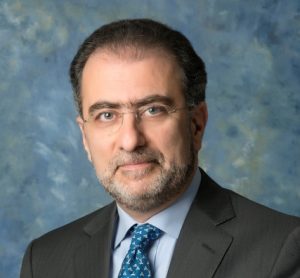In his presentation at the last SMART4SEA Conference, Panos Theodossopoulos, CEO Propulsion Analytics, talked about the application of machine learning techniques for energy efficiency, fault diagnostics and predictive maintenance in vessel/engine performance monitoring. Machine learning, already widely spread in numerous areas of digital life, the financial sector and science, is also finding its way into industrial and shipping applications.
Energy efficiency historically started approximately ten years ago. The first measure that everyone did was simply to reduce speed; therefore, slow steaming in a way marked the beginning of the energy efficiency initiative. Since then, we have gone through different waves of evolution and practices, and now we can say that we are on the fourth wave of what we call energy efficiency and performance monitoring. Things like online monitoring, fuel management, engine monitoring, condition-based monitoring, predictive maintenance, are the current practices in the market.
As a company, we believe that in order to monitor and deliver value in that area, one needs to encompass and embed three different pillars.
- Engineering: This could be in the form of simulation models or similar tools, reflecting the core engineering principles applying to both naval architecture and marine engineering.
- Human expertise: This can be found in technology vendors, in machinery equipment designers and manufacturers, but certainly also in ship operators.
- Machine learning: Machine learning techniques complement and should work hand-in-hand with the other two pillars. We believe that when these three work in parallel, the optimum value comes out.
In an effort to demystify what machine learning is all about, it can be simply viewed as another, less deterministic way, of programming. In other words, instead of giving direct and strict instructions to the computer to relate data between them (and go from A to B in a very strict way), we instead provide datasets to the computer and we let it figure out the relation between them.
Initially, machine learning was applied in sciences like biology, pharmacology, medicine, etc., but it is progressively becoming part of daily life. We might not realize that we ‘experience’ it every day in our internet navigation, in the types of advertisements that we are served, which are actually the outcome of machine learning algorithms matching our profile, practices and habits to the needs of those who want to advertise their products. The same happens with fraud detection and financial transactions we perform daily, like credit card or PayPal payments. They are all filtered through machine learning algorithms.
So, how do we apply machine learning? One has to begin from a historical big data set. The word ‘big’ is not limiting, but the bigger the historical data set, the better actual results one gets. So, historical big datasets are used to relate the data between them (the cause-effect principle) and train the machine learning algorithm to understand the relation between those datasets. Once this is done, it can then be applied in real life conditions and routine operations.
As a company, we have applied machine learning techniques in the areas of fault diagnosis and predictive maintenance (in other words, the ability to predict remaining useful life of components).
Starting with the first, we were able to detect piston scuffing, through the liner wall temperatures. We began with a historical dataset of many engines and various operating conditions, which we used to train the algorithm, by labeling “normal” operation, “pre-high friction” and “high friction” regimes. Once the machine learning algorithm was trained, it was then put in action.
Hence, during operation, by simply measuring (monitoring) the equivalent parameter that one used to train the algorithm, one is able to detect, according to the evolution of the sensor reading, at which stage the phenomenon actually is. Initially, in a real-life situation, everything is “green” denoting normal operation and then when the signal starts oscillating, the algorithm is able to predict a pre-high friction area, warning the operator in advance to perhaps increase lubrication. If nothing is done and the phenomenon continues, the algorithm will detect operation into a high friction area, possibly leading towards scuffing.
The second example is what is termed predictive maintenance, for instance, in the case of an exhaust valve. The historical dataset to train the Machine Learning algorithm in this case are monitoring data of related parameters, running hours, wear measurements and replacement events. Then, during operation, by monitoring these parameters and tracking the running hours of the components, one can actually predict wear estimation without measuring and also remaining useful life of the component itself. By comparing the remaining useful life predicted for a particular component to its planned maintenance schedule, depending on the outcome, one can either extend the useful life or preventively ad-hoc implement a maintenance task.
In closing, machine learning is a very useful tool and it is actually becoming quite standard in our industry. What we should not forget, however, is that it should always go hand-in-hand with core engineering and human expertise.
View Dr. Panos Theodossopoulos’ presentation during the last SMART4SEA Conference at
The views presented hereabove are only those of the author and not necessarily those of SAFETY4SEA and are for information sharing and discussion purposes only.

Panos is a Founding Partner & the CEO of Propulsion Analytics. He has held several management positions in Sales, Business Development, Services and Marketing, in the ICT sector, both in Greece and abroad. He has served as Director of Public Sector Sales and Director of Technology at Microsoft Hellas, where he worked for eight years and, more recently, he was General Manager of the Cloud Division of SingularLogic and then held the Country Manager in Logicom Solutions in Greece. He holds a M.Sc. in Mechanical Engineering from Tufts University, Boston, and a Ph.D. in Mechanical Engineering from Imperial College, London.




































































